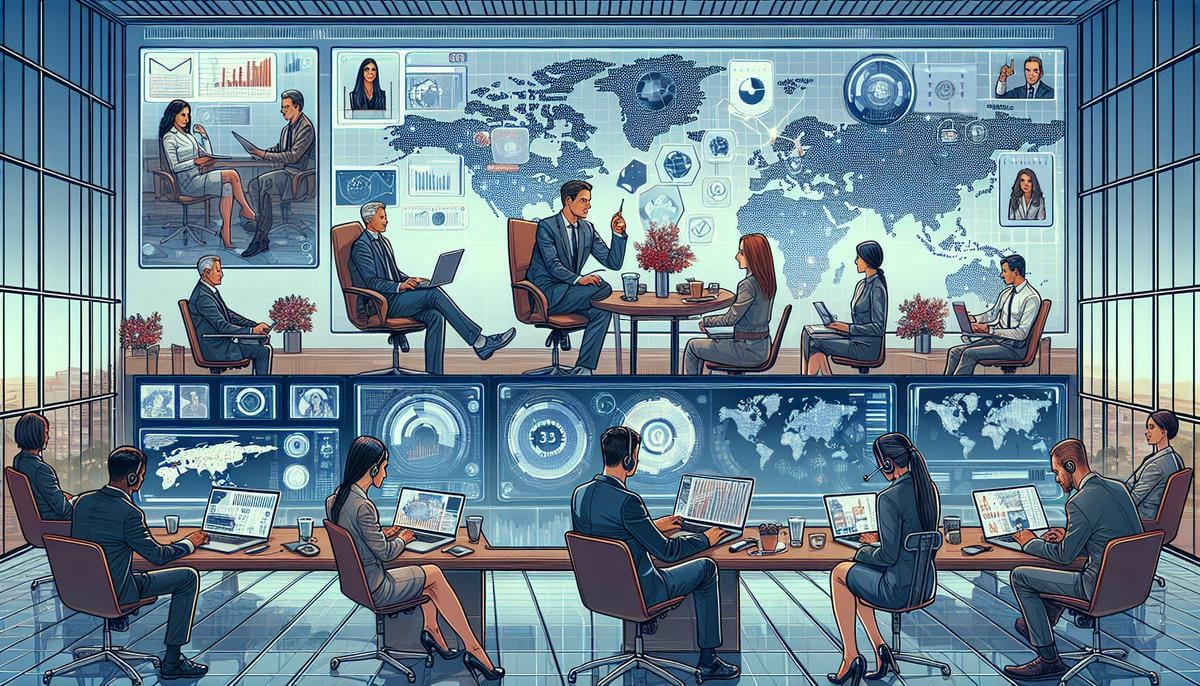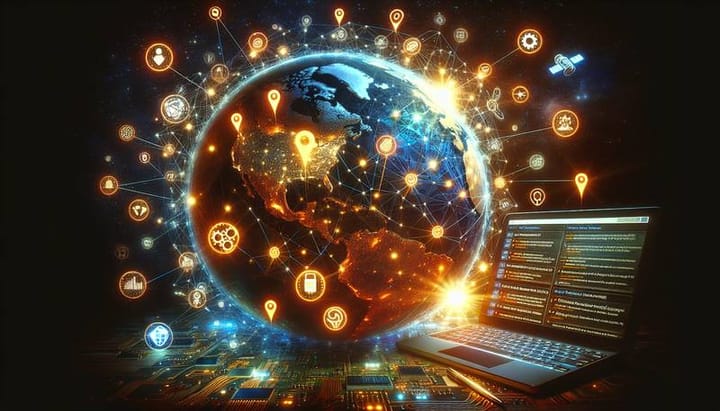The Future of Work: Remote and Digital Trends

Introduction
Welcome to our in-depth exploration into the evolution of the modern workplace, where disruptive technologies and the universal reach of the internet have converged to reshape what we consider 'work'. As we transition into a landscape dominated by remote capabilities and digital dependencies, we must adapt to keep pace with the changing tides. Envision a realm where your office is just as effective in your home as it is miles away; where digital tools streamline processes, enhance productivity, and open gateways to global talent. This guide illuminates the burgeoning trends that will define our occupational futures and lays out what you can expect in this brave new world of remote and digital work. So, let’s embark on this revelatory journey and shed light on the intricacies of the future of work.
The Rise of Remote Work
The concept of remote work is far from new, having roots in telecommuting practices that emerged in the 1970s. However, recent global events have accelerated its adoption, propelling millions into the world of virtual offices overnight. This seismic shift has not only demonstrated the viability of remote work on a large scale but has also highlighted its multiple advantages. For employees, remote work offers the coveted flexibility to balance professional and personal life, reduces commute times and expenses, and can lead to a more tailored and comfortable work environment. Employers, on the other hand, can leverage remote work to access a broader pool of talent without geographical limitations, decrease overhead costs, and potentially increase employee satisfaction and productivity. Yet, this transition is not without its hurdles. Companies face challenges including maintaining corporate culture, ensuring secure tech infrastructure, and fostering collaboration among decentralized teams. Addressing these will be vital for businesses to harness the full potential of remote work while mitigating its pitfalls.
Digital Collaboration Tools
Integral to the success of remote work are the engines driving it—digital collaboration tools. These platforms are the lifelines that maintain the flow of information and sustain team cohesion, irrespective of physical distances. At the frontline, we have the ever-evolving landscape of video conferencing software such as Zoom, Microsoft Teams, and Google Meet. These tools have transcended beyond simple communication to include features like file sharing, real-time co-editing, and virtual whiteboards. On the project management front, powerful software like Trello, Asana, and monday.com help organize tasks, track project timelines, and streamline workflow processes. Additionally, new age documentation and collaboration suites like Google Workspace and Office 365 allow for a synchronized work environment, enabling seamless teamwork and document control. Embracing these digital reference have helped bridge the gaps that remote work might present, ensuring that productivity remains unhindered and teams stay in sync.
The Gig Economy
The gig economy—a market characterized by short-term contracts or freelance work as opposed to permanent jobs—has been an unstoppable force in the modern workplace narrative. Fueled by the desire for flexible work hours and autonomy over job selection, the gig economy has become particularly bolstered by digital marketplaces like Upwork, Fiverr, and Freelancer. These platforms empower a diverse array of professionals to offer their services across the world instantaneously. Gig work is proving beneficial to companies looking for specialized skills on an ad-hoc basis or aiming to scale up dynamically according to business needs. But this new work paradigm also prompts considerations around job security and the lack of traditional employment benefits for gig workers. As this form of economic activity becomes more fortified, it presents an impetus for policymakers and organizations to refine labor laws and create support structures catering to the gig workforce.
The Impact of Artificial Intelligence
Artificial Intelligence (AI) is the silent revolutionizer of the contemporary work environment. Its integration into workplaces has taken many forms – from AI-assisted analytics tools that provide actionable business insights to chatbots that enhance customer service. More transformative applications lie in AI's ability to automate routine tasks, freeing up human workers to engage in more complex, creative, and strategic activities. This has given rise to fears of job displacement, but the true story might be more nuanced. AI is also creating new employment opportunities in sectors and roles that didn't previously exist, demanding a workforce that is adaptable and proficient in new technologies. The ongoing discourse around AI revolves around leveraging its strengths while reskilling the labor force to ensure that human talent isn't rendered obsolete by machines but rather complemented by them.
Upskilling and Reskilling
In an era where technological advancements are continuous and rapid, the shelf-life of skills is shrinking. Individuals can no longer rely solely on the skills they acquired early in their careers or educational journeys. This is where the concepts of upskilling — the process of learning new skills — and reskilling — learning new skills to change career paths — come into play. Both are becoming crucial for employees looking to stay relevant in the constantly evolving job market. For corporations, it's a strategic imperative to invest in the continuous development of their workforce's skillsets. There's a growing emphasis on digital literacy across all levels, as well as soft skills like adaptability, problem-solving, and communication, which are just as vital in a remote working context. Education technology platforms like Coursera, Udemy, and LinkedIn Learning are stepping up, providing accessible avenues for professional growth. By fostering a culture of lifelong learning, companies can not only tap into the full potential of their employees but also future-proof their operations against the shifts and spins of the digital era.
The Future of Office Spaces
As remote work takes center stage, it calls into question the role and configuration of physical office spaces. The once bustling hubs of collaboration and company culture might see transformations, possibly shifting towards hybrid models that accommodate both in-person and remote work. These hybrid environments might emerge as flexible workspaces, bookable desks, collaborative areas for team meetings, and reduced office footprints to optimize overhead costs. Companies are also pondering over their real estate strategies to tailor office spaces that are smart, safe, and conducive to the new work order. They're integrating technology for contactless access, utilizing space management software, and creating digitally equipped huddle rooms, ensuring that in-person interactions are as seamless and productive as remote ones. The office, in its new avatar, could potentially become a destination for engagement and innovation rather than merely a location one commutes to out of necessity.
Conclusion
As we have journeyed through the numerous facets of the future of work, it's evident that the tapestry is complex and colorful, woven together with threads of technology, adaptability, and human ingenuity. The shift towards digital and remote work is not merely a trend, but rather an evolutionary step in the world of work, one that promises increased flexibility, productivity, and opportunities for those willing to adapt. The keys to thriving in this new frontier are a balanced embrace of technology with a relentless focus on people and a commitment to continuous learning and development. While uncertainties and challenges lie ahead, the potential for a more inclusive and dynamic work environment is palpable. It's time for businesses, employees, and thought leaders to come together to shape a future that capitalizes on the benefits of these emerging trends while navigating their complexities with foresight and humanity.


